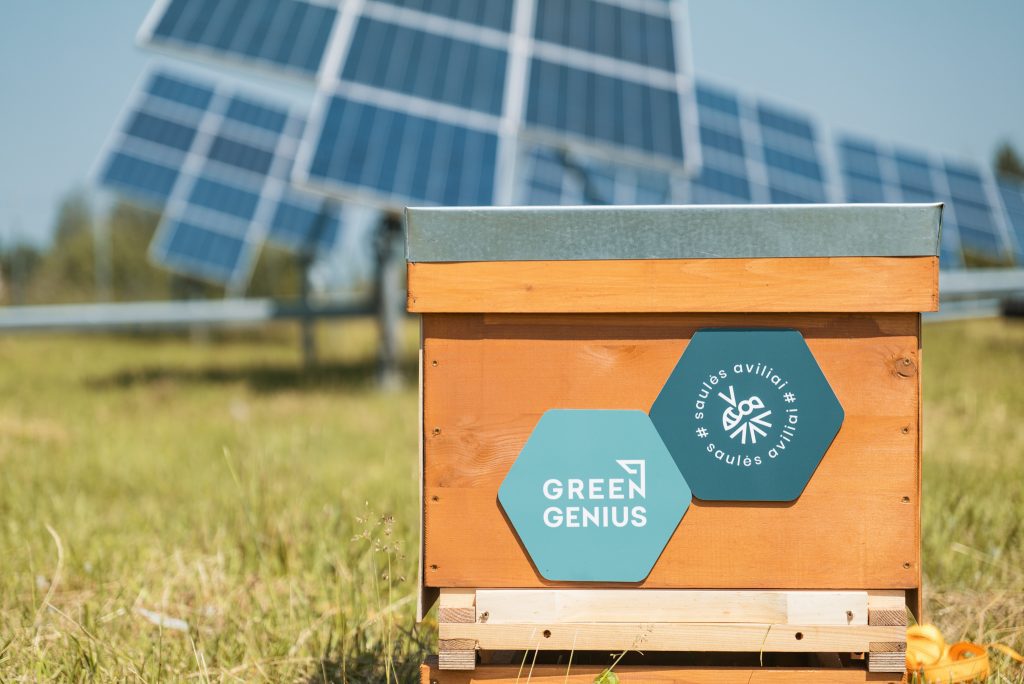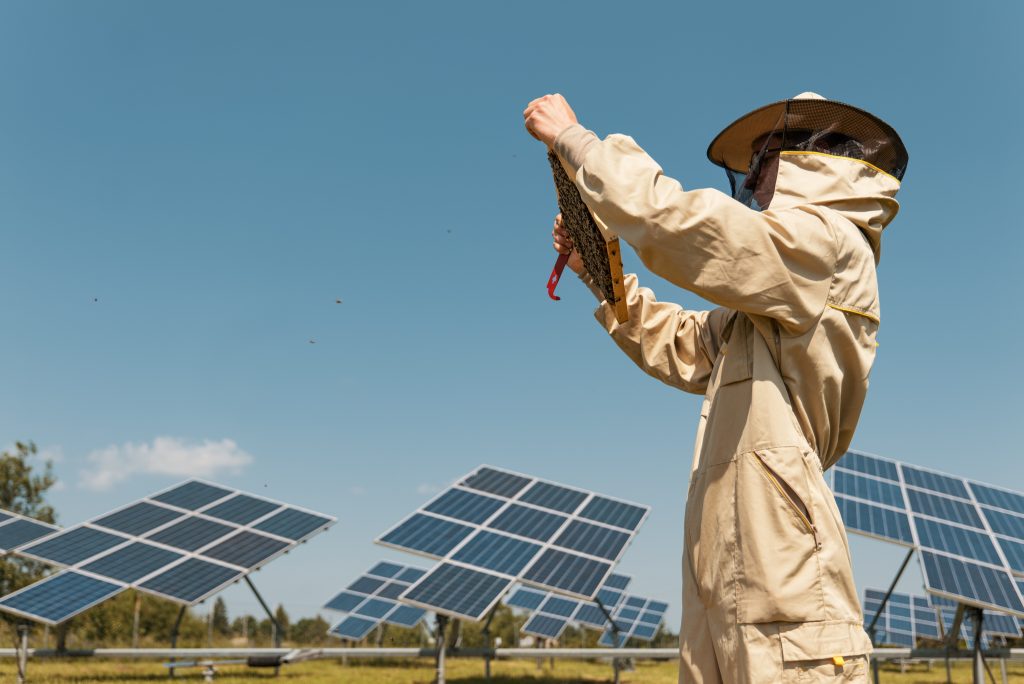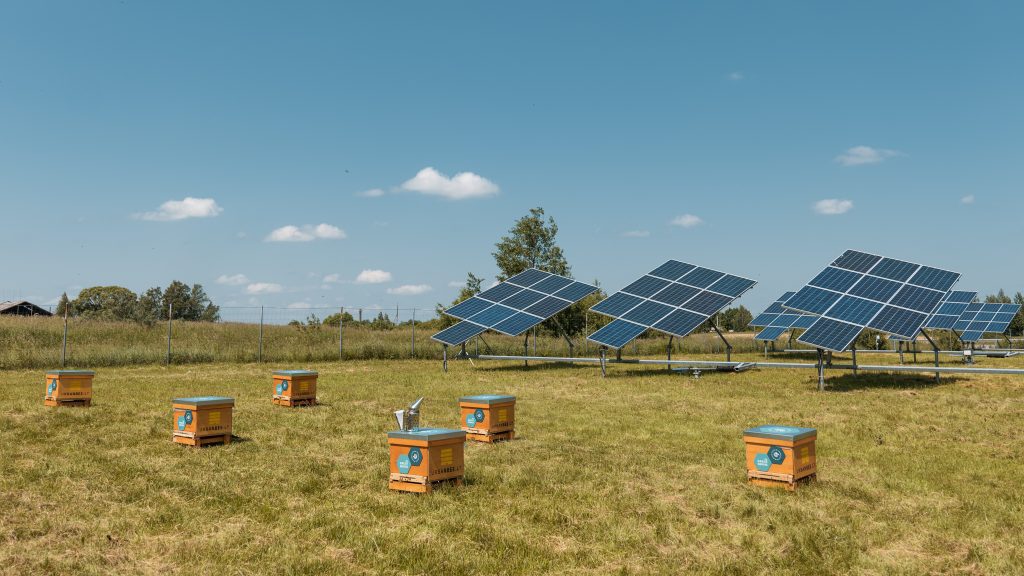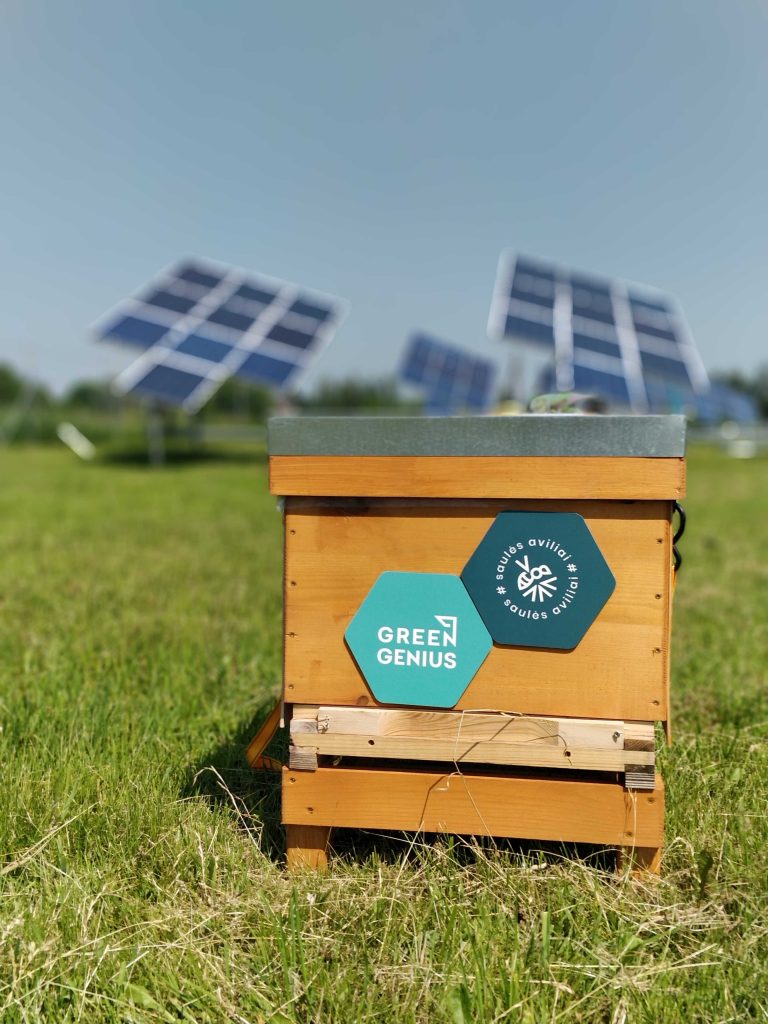Please read these Rules carefully, because they describe your rights and obligations. By using the Site, the User (Registered user) unconditionally confirms that he/she is properly acquainted with the Rules and undertakes to comply with them.
- DEFINITIONS
1.1. The Site – website available by the address https://www.greengenius.com/.
1.2. The Rules – the rules of processing Personal data on the Site and/or mobile application, which describe basic rules for processing Personal data and other information while using the Site and/or mobile application and ordering the goods or services sold on the Site and/or mobile application.
1.3. The Data Controller – the entity that determines the purposes and means of the processing of Personal Data; in this case – Green Genius (UAB “Green Genius”, registration number 302841738, registered office: Ozo str. 10A, Vilnius, LT-04326, Lithuania, tel. No. +370 655 45222, hello@greengenius.lt).
1.4. The User – any person who has not registered at the Site (both natural person and legal entity) who uses the Site.
1.5. The Registered user – a person who has registered and has personal account at the Site (both natural person and legal person).
1.6. Personal data – any information relating to natural person – data subject, who can be identified, directly or indirectly, in particular by reference to an identifier such as an identification number, one or more factors specific to the physical, physiological, genetic, mental, economic, cultural or social identity of that natural person.
1.7. Applicable data privacy laws – General Data Protection Regulation (EU) 2016/679 and other mandatory European Union and its Member States (including the Republic of Lithuania) legal acts applicable to the processing of Personal data.
- GENERAL PROVISIONS
2.2. Taking into account Applicable data privacy laws, Green Genius has the right at any time without prior notice to the Registered user (User) to modify, amend or supplement these Rules. New Rules come into force from the date they are placed on the Site. Green Genius will inform Personal data subjects directly of any important amendments of the Rules that may impact them or require their consent.
2.3. While processing Personal data Green Genius applies the general personal data protection principles, in particular lawfulness, fairness and transparency, purpose limitation, data minimisation, accuracy, storage limitation, integrity and confidentiality principles.
- THE PURPOSES PROCESSING PERSONAL DATA
3.1. The basis of processing Personal data:
3.1.1.The consent of Personal data subject (Personal data are processed to achieve the purposes stated at Art. 3.2.3, 3.2.9 of the Rules);
3.1.2. Performance of a contract with the Registered user (Personal data are processed to achieve the purposes stated at Art. 3.2.1, 3.2.2, 3.2.3, 3.2.4, 3.2.8 of the Rules);
3.1.3. Legal obligation (Personal data are processed to achieve the purpose stated at the Art. 3.2.7 of the Rules);
3.1.4. Legitimate interests of Green Genius: to ensure that the Registered user, with whom the contract is concluded, is in line with the acceptable risk profile; debt recovery; organising archives; providing information about latest products to current clients (Personal data are processed to achieve the purposes stated at Art. 3.2.5, 3.2.6, 3.2.8. 3.2.9. of the Rules);
3.2. Purposes of processing Personal data:
3.2.1. identification of Registered user;
3.2.2. processing orders for services and goods on the Site and/or mobile application;
3.2.3. quality assurance of services provided by Green Genius;
3.2.2. managing complaints and other requests of the Users/Registered users;
3.2.5.managing the debts of the Registered user and transfer of the rights to the debts of the Registered users;
3.2.6.Check of creditworthiness of the Registered users;
3.2.7.Compliance with legal obligations;
3.2.8. handling databases of Registered users;
3.2.9. direct marketing.
3.3. When User registers at the Site, Green Genius collects his/her basic Personal data necessary to identify the User, which is submitted by the User upon the completion of the registration form, i.e. name, surname, email address and phone number. Without submitting such data the registration is not possible at the Site.
3.4. The Registered user expresses his/her consent to process his/her Personal data by agreeing to these Rules.
3.4. Registration on the Site is required for Users who want to contact Green Genius, get more information about the services and products provided by Green Genius and order the services and products provided by Green Genius.
3.5. When submitting an order for goods or services via registered account, Green Genius collects additional Personal Data (i.e. birth date, address, payment card number, bank account number and account information) and other information necessary for forming and submitting the commercial offer and for the correct execution of the order, i.e. proper entering into and performance of the contract with the Registered user, which is submitted by the Registered user upon the completion of the order form.
3.6. The order history of Registered user is stored in the Registered user’s Site Account, enabling the Registered user to view his/her order history, to generate repeat orders. The order history can also be used by Green Genius for statistical purposes in accordance with the principle of data minimisation.
3.7. Upon receipt of the consent of the Registered user (i.e. by checking the appropriate box, ordering a newsletter, etc.), Green Genius may use and process the Registered user’s Personal Data for direct marketing purposes, i.e. forming and sending special offers, promotional and other information related to Green Genius activities, Site News, goods being sold on it, etc. The following Personal data are processed for the purpose of direct marketing: name, surname, email address, phone number, history of the orders. Consent to process Personal data for direct marketing may be cancelled at any time by contacting Green Genius by email info@modusenergy.com.
3.8. Green Genius may use e-mail addresses of the Registered users to whom Green Genius has sold goods or provided services for marketing of its own similar goods or services if the information about clear, free and easy-to-use opportunity to oppose or refuse the use of the contact data for this purpose is provided to them in the marketing messages.
3.9. Green Genius may also use Personal data of Registered user to claim, execute or defend its legal claims.
3.10. In order to prevent online fraud and to ensure that a credit or debit card is not used without the consent of Registered user, Green Genius has the right to verify the name, address and other personal information submitted during the formation of the order, in third-party databases.
- PROCESSING PERSONAL DATA
1.1. Green Genius complies in its use of Personal Data with Applicable data privacy laws.
1.2. Green Genius processes Personal data of Registered user only to the extent and during the time necessary for the purposes of processing Personal data.
1.3. Green Genius appoints Data protection officer, if it is required by Applicable data privacy laws.
1.4. The right to process Personal data have only persons who are assigned by the Data Controller.
- PERSONAL DATA STORAGE AND ASSURANCE OF SECURITY MEASURES
2.1. Green Genius is obligated to protect the confidentiality of Personal data, process Personal data as it is required is required by Applicable data privacy laws, not to disclose, transmit or create conditions by any means to access Personal data to any person who is not authorized to process Personal data.
2.2. In order to ensure the protection of Personal data, Green Genius implements the following protection measures of Personal data:
2.2.1. administrative (establishment of a safe working environment for documents and computer, server data and their archives, as well as organization of work in various fields of activity, etc.);
2.2.2. technical and software security (administration of information systems and databases, performing maintenance of work places and premises, protection of operating systems, protection against computer viruses, use of passwords, etc.).
2.3. If Green Genius assigns third person to process Personal data, Green Genius is responsible for the security of these data.
- SHARING AND TRANSMISSION OF PERSONAL DATA
6.1. Personal data may only be provided to those third parties with whom Green Genius has signed respective agreements on the Personal Data Transmission/Sharing and such third parties ensure adequate protection of transmitted Personal data.
6.2. Green Genius, acting as Data controller, may transfer Persona data for:
6.2.1. partners providing services and delivery of goods or other orders associated with the Registered user;
6.2.2. internal and external IT specialists;
6.2.3. lawyers, companies handling joint debtor data files;
6.2.4. companies which takes over the debts, bailiffs;
6.2.5. in response to requests from court or public authorities, only to the extent necessary to properly enforce existing legislation or court order / procedural document;
6.2.6. auditors;
6.2.7. marketing specialists (if Personal data are being processed for marketing purposes);
6.2.8. other third parties handling Registered users database of Green Genius;
6.2.9. other third parties with the consent of the Registered user, which may be obtained on a case-by-case basis.
6.3. By processing the User‘s database Green Genius is a joint data controller with Green Genius Sp. z o o. according to the arrangement concluded between the parties. The essence of the arrangement is available to the Data subject by submiting the request by e-mail hello@greengenius.lt. According to the agreement of the Data controllers Green Genius implements the rights of Data subject. Whereas more than one controller is involved in the same processing, each controller shall be held liable for the entire damage in order to ensure effective compensation of the Data subject.
- DURATION OF PROCESSING PERSONAL DATA
7.1. Personal data needed for direct marketing are stored not longer than 10 years after the last purchase completed by the Registered user.
7.2. Personal data and other information provided in the course of making orders and / or required for performance of contractual obligations will be protected for the whole period of the agreement, concluded with the Registered user, duration or warranty period of the purchased goods, but not longer than 10 (ten) years from the date of delivery of the goods. Personal data needed to manage debts are stored until the debt is cancelled, but not more than 10 years after the last purchase completed by the Registered user. Upon this deadline, the Registered user’s Personal data are securely erased or irreversibly anonymized without notifying the Registered user in advance, except for the Personal data of the Registered user that is necessary for the functioning of his/her account on the Site which is further processed as specified in Art. 7.2 and 7.3 of these Rules.
7.3. Other Personal data of Registered user are processed and stored until the Registered user erases his/her account on the Site or until the Registered user submits a written declaration confirming that he/she disagrees with the processing of Personal data or requests to terminate such processing of Personal data.
7.4. Green Genius stores Personal data for no longer than what the purposes of processing Personal data or Applicable data privacy laws requires, if they provide for longer data retention. Green Genius makes every effort to ensure that Personal data and information about Registered users are kept up-to-date and accurate.
- USE OF COOKIES
8.1. To provide the user and the Registered user with the full range of services Green Genius uses system cookies. Cookies are used to identify a previous visitor of the Site, set the language of the Site, identify a user session, a session key, collect statistics on visiting the Site and analyze statistics, to identify and correct errors on the Site.
8.2. By visiting the Site, the User or the Registered user can choose whether or not to use cookies. The principles of cookie‘s operation and more information about such tools are provided in a separate section of the Site – www.greengenius.pl/polityka-cookie
8.3. Green Genius complies in its use of cookies with Applicable Data Privacy Laws.
- IMPLEMENTATION OF THE RIGHTS OF REGISTERED USER
9.1. Registered user has a right anytime by contacting Green Genius by mail, by post or by phone (contact details of Green Genius are provided in the Art. 1.3 of the Rules) to request from Green Genius the access to and rectification, erasure or restriction of processing of the Personal data of the Registered user, to object to processing as well as the right to data portability of such Personal data.
9.2. If Registered user considers that his/her Personal data is processed illegally or is concerned about the actions or inactivity of Green Genius, he/she may address to Green Genius by mail, by post or by phone ((contact details of Green Genius are provided in the Art. 1.3 of the Rules). In case of failure to solve the issue with Green Genius, Registered user has the right to revert to the State Data Protection Inspectorate, who is responsible for the supervision and control of personal data protection laws.
9.2. In the case the Personal data of the Registered user is processed on the basis of consent, he/she has the right to cancel his/her consent at any time without prejudice to the consent of the processing of the data prior to the legality of the withdrawal of consent.
9.3. The Registered user may update and adjust his/her Personal data at any time via his/her registered account on the Site.
9.4. Green Genius may request the Registered user to submit additional information necessary to confirm the identity of the Data subject.
- FINAL PROVISIONS
10.1 For convenience to the users, the Site may contain links to third-party websites and other content that Green Genius cannot control. Green Genius is not responsible for the information disclosed by third parties; it does not censor and does not necessarily support it. Green Genius is also not responsible for the policies of third-parties privacy, including, but not limited to, damages, damages or breaches, existing or potential third party advertising policies, content, products and their inappropriate use, services, and other information resources.







